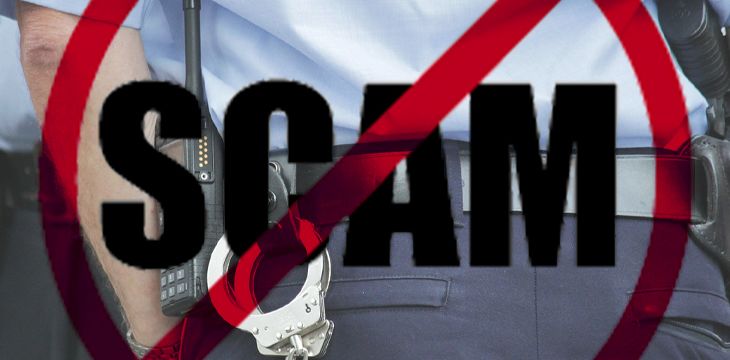|
Getting your Trinity Audio player ready...
|
Scammers in Canada have been contacting residents, impersonating police and tax officers and then demanding BTC. Two victims who fell prey to the scammers ended up losing over $15,000 to the scammers.
The scammers have been targeting residents in Strathcona County, a municipality in the western province of Alberta in Canada. They called their victims under false pretenses, coercing or threatening them to send BTC.
In one instance, two scammers impersonated a police officer from the Royal Canada Mounted Police and an officer from the Canadian Revenue Agency respectively. They demanded ransom in BTC, threatening to arrest the victim if he didn’t meet their demands.
They instructed the victim to go to the bank, withdraw cash and deposit it into a BTC ATM machine. The victim lost C$12,000 (US$8,854) to the scam.
In another instance, the scammer impersonated officers from the RCMP in a call with the victim. He told the victim that his social insurance number had been compromised. There were several pending fraud allegations against him that they were investigating, the scammer claimed. However, the victim could make it all go away if he deposited cash into a BTC ATM machine.
The second victim deposited C$9,000 (US$6,640) into the ATM machine.
The RCMP is warning Canadians against falling victim to such scams which have been on the rise in recent months. Chantelle Kelly, a constable with the Strathcona County RCMP stated, “There is no circumstance where police will contact individuals requesting Bitcoin. These scammers typically contact hundreds of people hoping someone will send them money.”
Canada has continued to experience scams related to digital currencies as their popularity has risen. In late 2019, scammers in Canada turned to one of the simplest scam tricks ever. They made posters which they hang on digital currency ATMs, claiming that the ATM wasn’t working. They then listed a series of steps that the customer should take instead of the conventional scanning of the QR code.
The scammers even apologized to the clients for the inconvenience caused by the ATM outage and promised to charge a lower processing fee.
However, the listed steps were meant to send digital currencies to the scammers.

 02-22-2026
02-22-2026 




